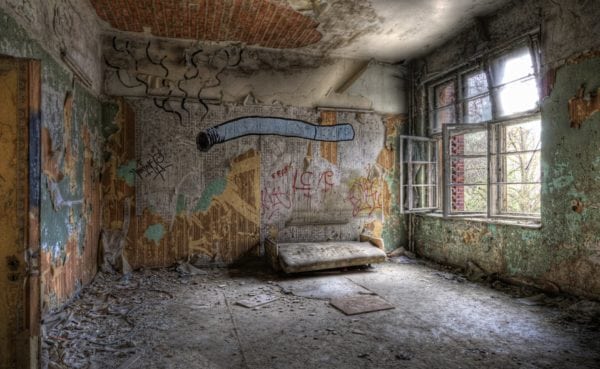
The current real estate market is frenzied coming up to its nineteenth year of escalating house prices. Fixer uppers, in particular, seem to be getting more buyer attention. Some fixer uppers have received 10, 20 even 30 offers in popular areas and sold for hundreds of thousands of dollars above the list price.
Why is this happening? The insatiable allure of the potential for growth in a rapidly developing neighbourhood is drawing the end user but also the contractor and renovator, who make a living by “flipping” properties for a profit, and even the regular Joe, are all throwing their hat in the ring. But there are serious issues unique to a fixer upper that a buyer and even a seller has to consider before signing on the dotted line.
Many buyers get in way over their head because they get caught up in the frenzy and don’t consider the effort, skill and financial commitment it takes to make a profit in the flipping game. So what should buyers be aware of?

First, ask “how much is it going to cost to renovate and to incorporate what buyers are looking for?” Be realistic, get multiple quotes and be thorough. Include the following:
- cost to renovate plus HST and budget an allowance for unexpected problems
- cost for engineer, architect, contractor, interior designer, permits and Committee of Adjustment
- cost to carry the property for the length of time it will take to renovate plus the cost to carry until it sells
- add land transfer taxes, mortgage interest, property taxes, utilities, insurance
- add commission and staging costs to sell it
- add any capital gains you will have to pay
Then ask “how much profit do I want to make?” If you buy a fixer upper for $750,000, the above costs add up to $500,000 and you expect to sell it for $1.5 to $1.6 million to make this venture worthwhile, will the future market bear this price?

Be cautious of overzealous or inexperienced real estate agents because taking their advice could cost you. Ask them how long they have been in the business. Inexperienced real estate agents can’t possibly advice you on future values, changing markets, what buyers are looking for and the implications of undertaking this type of project.
Furthermore be cautious of agents who give you over inflated resale prices. We have come across many renovators who took their realtor’s advice, over renovated the property to include Wolf ranges, elaborate lighting systems, highly expensive stones because they were told the market could bear the targeted selling price only to find out this wasn’t the case. So do your due diligence and deal with an experienced realtor you trust – who will tell you the truth.
Furthermore before you buy this fixer upper you have to consider these issues:
- If the fixer upper is not livable, traditional banks will not finance it. Therefore you will have to get your financing from a B lender or private lender who generally charge a higher interest rate.
- Insurance companies will only give you short term renovation insurance and charge you a huge premium.
- If you have to apply to Committee of Adjustments for permits to approve the features contemplated, it will take additional time and cost you more money. Even worse is if your proposal is rejected and they send you to OMB for consideration.
- What if a neighbour is successful in objecting to your building plans costing you legal fees and time delays?
- If the property has no parking will the city approve your planned parking spot? Houses with no parking do not get as much buyer attention and could be high risk.
- Is there a tree on the lot that the city will not allow you to cut down which could disrupt your building plans? The Forestry Department is unforgiving.
- Ultimately do you know what buyers are looking for in a renovated house? If you don’t give buyers what they want you will not sell your house for the intended dollar amount.
- Since the owner of the property is the only one who can apply for building permits, your real estate agent should put a clause in the offer asking the seller to sign the application for the building permits before closing so that you will be able to start the renovation as soon as you take possession.

It’s important to be aware of the risks of changing markets. You may buy the fixer upper in a seller’s market and potentially sell it in a buyer’s market. When this happens you can lose a great deal of money.
How quickly we forget how markets can turn; at the beginning of the recession in 1989 lasting 7 years, after 9/11, after Lehman Brothers went under in Sept 2008, after expansion of the HST in July 2010, after mortgage rule changes in July 2012. These episodes cooled the housing market and posed serious risks to many “flippers” counting on a dollar amount for their renovated houses.
It’s true that many people make a great living from renovating houses and selling them for a profit but others have lost their shirt. So it is far from easy money. Instead it’s risky and requires a great deal of work and specific expertise.
It isn’t just buyers of fixer uppers who have to tread carefully, though. Sellers have to also, to ensure the transaction closes. So what should sellers be aware of?
I will give you one example: we sold a fixer upper and procured nine offers. The asking price was $649,000 and the offers we received ranged from $625,000 to $778,000.
Of course the seller, like any other, was keen to accept the highest offer by a significant amount but I had some concerns. The buyer’s agent did not provide the certified cheque we requested on the listing.
Why should this concern me? I was concerned the buyer got caught up in bidding war, as many do, without doing proper due diligence and then get “buyer remorse” the next day and not deliver the certified deposit cheque.
This is not a good place for the seller to be in. Yes he could then sue the buyer, or simply put it back on the market but more likely, to avoid litigation, he would offer the house to the second highest bidder. But that bidder may not offer the same price they did the night before leaving the seller to potentially accept a lower offer.
Further nagging my concerns about the highest offer was the buyer agent’s naiveté and lack of confidence. So I asked if I could talk to the buyer directly and asked him:
- “Are you aware that you may not get a conventional mortgage and that financing this project could be costlier than normal?” He was not aware of this.
- “How much do you think it will cost you to renovate this house?” He replied $150,000. This house required a minimum of $350,000 to $500,000 to renovate so his answer raised a red flag.
- “Have you taken a contractor through the house?” He replied “no”.
 It became clear the buyer and his agent did not perform due diligence and did not think this project through. Therefore, the seller wisely accepted a lower offer from a buyer that performed due diligence and provided a certified cheque whom we believed would close.
It became clear the buyer and his agent did not perform due diligence and did not think this project through. Therefore, the seller wisely accepted a lower offer from a buyer that performed due diligence and provided a certified cheque whom we believed would close.
Very recently I noticed that a few fixer uppers that sold in 2013, which should have closed, are back on the market because the buyer did not get financing.
Other cautions the seller should take are to:
- Ask for a large certified deposit making it less likely the buyer will jeopardize this money by not closing.
- Ask your agent to put a clause in the offer that the property is being sold “as is where is” without warranties.
There are many more considerations for both buyers and sellers when dealing with a fixer upper so it’s best to discuss every aspect with your trusted contractor, architect, engineer, designer, lawyer and real estate agent before signing on the dotted line.
PS: price of house in the example provided has been changed to protect the parties involved.